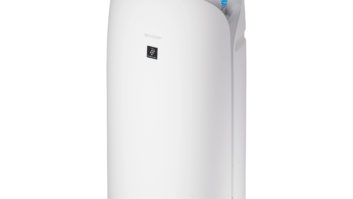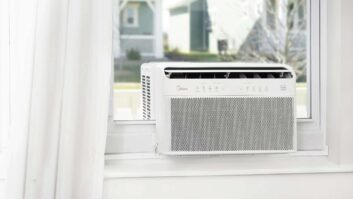Although room air conditioning has become a basic need category immune to a cooling economy, equally mild summer weather has had a chilling effect on sales.
Indeed, retailers, buying groups and distributors have been largely disappointed by the sector’s performance this year, and are holding out hope for a heat wave that can salvage the selling season.
“Air conditioners are 98 percent driven by the weather,” said Ed Kelly, director of the Nationwide TV & Appliance buying group, noting that this year’s relatively cool summer thus far has not fared well for the A/C business.
“If it waits too much longer, then it’s going to be too late to recover,” he added, although the buying group has seen some decent sales in the northern markets due to spurts of hot weather.
If the country doesn’t feel some heat by the end of July, it might be too late to save the A/C season, agreed Warren Chaiken, senior VP of Almo Corp., a Philadelphia-based distributor that supplies the Northeast, Mid-Atlantic and parts of the Midwest. By then, “people realize that they can live without it [for the rest of the summer].”
“Overall, the initial buy-in by the dealers was good, but we haven’t seen very good sell-throughs. I’m hoping that we get heat quick, but I have a feeling that it’s not going to be a great area [of sales],” Chaiken said, adding that hot weather also leads to greater sell-throughs in other categories, such as refrigerators.
Most retailers reported low to flat air conditioner sales, with a few pointing to pockets of wealth from regional pockets of warmth.
“Overall, it’s been a very tough air conditioner season,” said NATM executive director Bill Trawick, adding that the group has seen decent to good sales in a couple locales, such as the South. “But, we’re not anticipating good sell-throughs where the temperatures have been cool.”
On a slightly upbeat note, likely due to being based in the somewhat hotter — and more apartment-rich — Northeast, executive director of the NECO Alliance Mel Hunger said, “It’s not quite as good [as last year], but we’re still doing well.”
Also based in the Northeast, the fifth-largest majap retailer in the country, P.C. Richard & Son, reported decent numbers. “Our A/C business is good. Last month’s heat helped. It was hot enough to bring us on pace with last year’s sales, which weren’t bad,” said Doug Kelly, general merchandise manager for major appliances. “But the previous three years were record years. The heat came in mid- to late June and lasted throughout July and August. Last year, though, June 17th was the last hot day [in the New York metro area]. So this year, any heat in July will be gravy. It’ll end up being a good air season, though not spectacular.”
Unlike last year at this time, retailers are reporting no shortages in A/C shipments. And, unless the country is unexpectedly hit by an intense heat spell, retailers don’t expect any this year.
More proof of a sales slump came last month when home comfort manufacturer Fedders announced it is shutting a factory, laying off workers and moving much of its domestic production to Asia.
Fedders explained its decision with its sales figures. The company’s sales declined 4.3 percent to $186.7 million during its fiscal third quarter ended May 31, 2001, while net income fell 59 percent from the year-ago period to $6.9 million. Gross profit margin shrunk to 17.1 percent during the quarter from 22.7 percent last year.
Fedders pointed to decreased demand for room air following last year’s cool summer, and attributed the earnings decline to increased sales of lower margin products and lower production volume at its plants.
Warren Mann, executive director of the MARTA buying group, also cited the problem of lower margins, which he said are a result of retailers deciding they just don’t want to end up with leftover inventory.
“At this point in the season, if there’s no heat early, then this segment starts to drop prices,” he said. Mann explained that the pressure to lower retails trickles down to the smaller dealers from the big-box retailers’ price moves.
In terms of special features, remote controls are still a hot item, as is energy efficiency.
“The remote caught on a lot last year, and that trend is continuing,” Mann said, adding that units labeled “energy efficient” are also popular due to press coverage of a possible energy crunch this summer.
NECO’s Hunger agreed that Energy Star-labeled units were selling well in the higher-end category, though he said the inconsistency in rebates from state to state was frustrating for some retailers.
In general, dealers indicated that there still was too much summer left to know for certain how 2001’s A/C sales would compare to previous years, and that July would be the telltale month.
“We like the three ‘H’s: Hazy, hot and humid makes us happy. So really it’s four’H’s. You can sell replacement purchases, but you need the heat to really sell,” said Gary Richard, president and CEO of P.C. Richard & Son. “We can hold out ’til July. Otherwise, there’s gonna be a lot of returns.”













